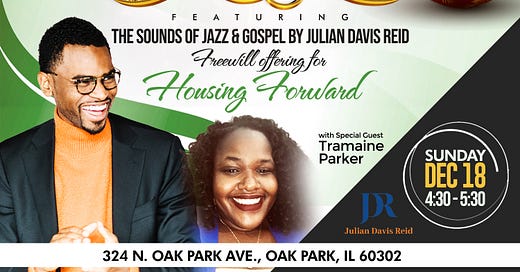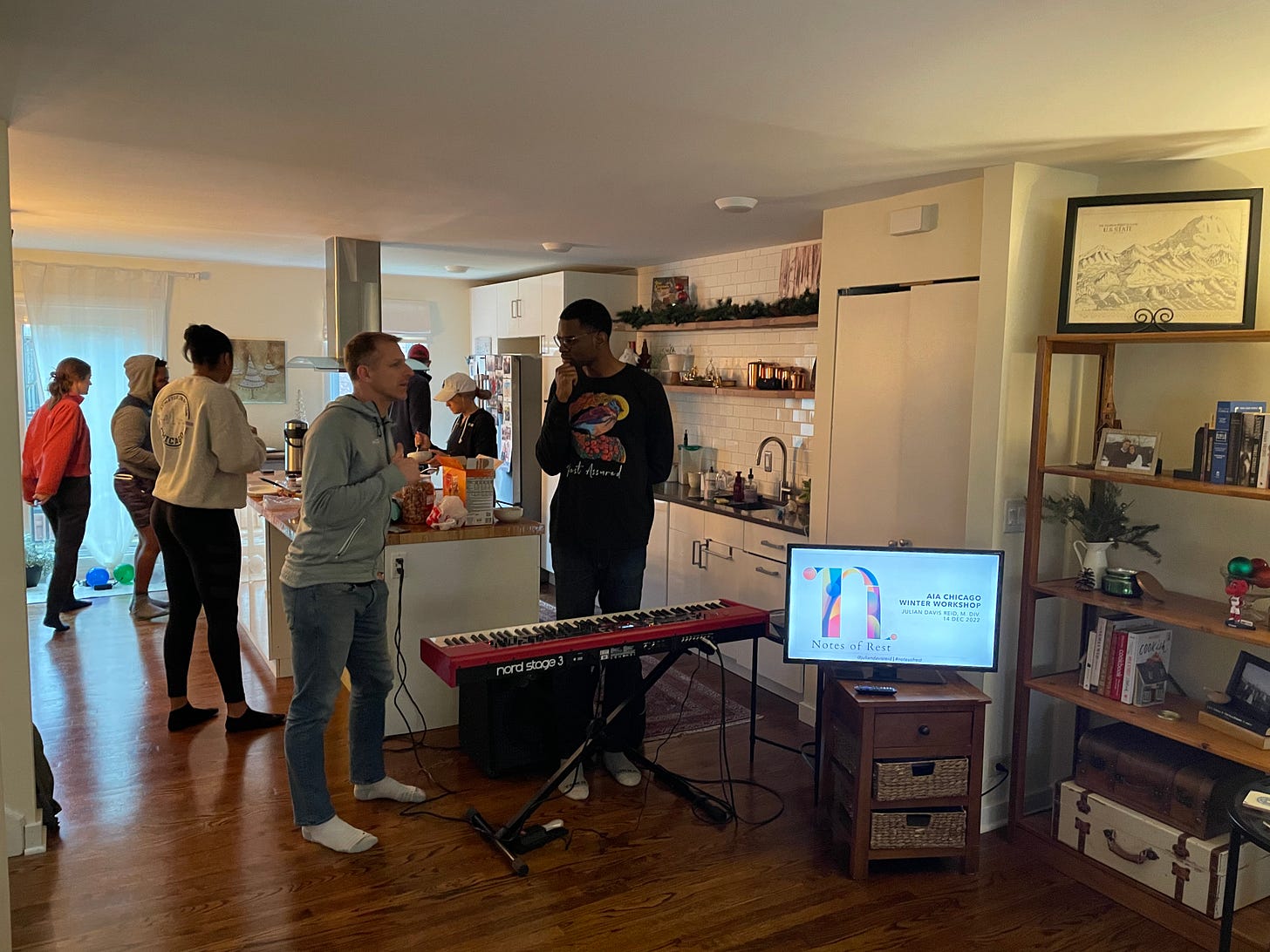The Fermata Post: My Hope for this Christmastime
A Free Christmas Concert this Sunday in Oak Park, IL, Musings on "Come Sunday"
Hi everyone,
I hope this Advent season (the time leading up to Jesus’ birth) has been filled with joy and contemplation alongside the hustle and bustle of buying gifts and finishing out payroll. To help you with that spirit, I’ll be playing a duo concert this weekend Sunday with the great vocalist Tramaine Parker. It’ll be at my mother Rev. Adonna Davis Reid’s church, First UMC of Oak Park, on Sunday at 4.30p. And it’s free, with a freewill offering for a housing initiative in the area called Housing Forward. (I love the irony of raising funds for people to have affordable housing when Mary delivered baby Jesus in an animal stable outside. Housing needs are core to the story of God coming to earth to make God’s home here.1)
One of the songs Tramaine and I will be singing will be Come Sunday, the wonderfully profound number from Duke Ellington, featuring the Queen of Gospel, Mahalia Jackson. On the surface it may not appear to be a Christmas song given it isn’t a well-known Christmas carol. But this year, thanks to my good friend James Ramsey, I see that it should be.
In his grad school thesis “Black Relativity: On Law, Music, and Spirit in (Anti-)Black Time,” James, an M.Div. and J.D. graduate from Harvard, shows how modernity, including America’s legal system, has frozen Black folk in narratives of decay, primitivity, and death — all reflecting a distorted view of time.2 But James, who is also a gifted saxophonist and singer, then points to how Black folk have relied on the intertwining forces of faith and music to create alternative narratives of time that enable us to hold on amidst it all.
He lifts up Come Sunday as one of these songs, a piece by Duke Ellington and Mahalia Jackson. Its lyrics speak to that though we may be tired in our current dealings, one day - “come Sunday” - there will be peace for us. James notes that Duke and Mahalia imbue “Sunday” with two meanings. One is in the quotidian sense of being a routine respite from work. But in the deeper theological sense, Mahalia is singing about an eschatological hope, a kind of hope about the peace God will bring into fullness at the end of all time.
James’ view of Come Sunday relates to Christmas because the future that God is bringing to us now is celebrated by Christians as centering on Jesus, born in a manger. For Christians, the Christmas season is not just about celebrating the fact God came to earth as Jesus Christ way back in ancient Palestine. We celebrate also because we look forward to the day of ultimate peace and renewal that God will bring to our weary bones. This is a vision retrievable for anyone who follows after Jesus, but it is of particular good news to those who have been the routine victims of a vision of time that has distorted, maimed, and erased our histories and futures.
With this in mind, Tramaine and I will sing Come Sunday at the concert as a fervent hope for this Christmastime. See you there.
abundantly,
Julian
P.S. This week I had my first house visit for Notes of Rest! On Wednesday I was at a local gathering of campus ministers for Athletes in Action, a college campus ministry to students. This was here in Chicago at their semester-end hang. I love the intimacy of home gatherings. Would love to come to a gathering at yours!
Here’s a great book, The Home of God, about God’s home on earth that my friend Ryan McAnnally-Linz co-wrote with his co-theologian colleague Miroslav Volf.
See: Christina Sharpe’s In the Wake: On Blackness and Being for more detail on how modernity still lives in the wake of the slave ship.





